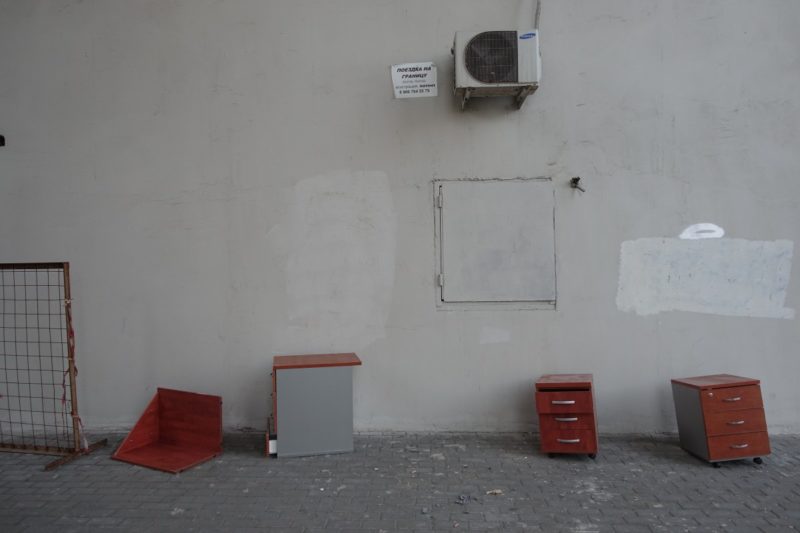Are you wondering what does a capacitor do in an air conditioner? The capacitor is an air conditioner that has the most critical job. But, unfortunately, it is also the reason why it quickly breaks down.
Capacitors have a tedious job, from storing electricity to being the primary reason cold air moves out of your air conditioner. If you want a deeper understanding of an AC capacitor, this article will give you the necessary information.

A Capacitor In An Air Conditioner
Ac’s do not have a definite number of capacitors. A single capacitor may be present in one system, whereas many capacitors may be present in another. On circuit boards, capacitors are frequently seen.
A break in the capacitor is widespread among most households. But before fixing it, we need to understand what its job in ac is. As aforementioned, the capacitor has a heavy workload. That’s why a capacitor breaking down is very common.
Today we will provide you with information regarding what does a capacitor do in an air conditioner. And here they are:
Function #1. Store electricity
The capacitor in your air conditioner is an electrical component that stores charge in an electrostatic field. In other words, it’s a power storage device for the short term.
Capacitors are electronic devices that store electrical energy in the form of accumulated electrical charges on their plates. When a capacitor is linked to a power source, it stores the energy released when the capacitor is removed from the charging source.
It is very similar to on how batteries work. The difference is that a battery stores energy through electrochemical processes, whereas a capacitor merely stores charge. As a result, capacitors may release stored energy at a far faster pace than batteries because chemical reactions take longer.
Function #2. Starts up the AC unit
Due to their capacitors, air conditioners do a little magic trick every time they turn on. Because your A/C unit requires considerably more start-up energy than is available through your home’s wiring.
The capacitor is added to the circuit to give an electrical jumpstart. At the same time, your air conditioner draws power from the grid. These two electrical sources work together to supply the correct quantity of power to your air conditioner.
Until an air conditioning cycle is completed, the capacitor’s work is done. The capacitor produces a high-voltage jolt of 400 to 600 volts when you switch on your air conditioner. It sends it to the blower motor, fan motor, and compressor.
The compressor motor run capacitor, the outside fan motor run capacitor, the inside fan motor run capacitor, and the start capacitor are all possible components of your air conditioner.
The compressor motor run capacitor is the most typical capacitor to fail. That is because it has an enormous task to do, and it takes up a lot of space in your air conditioner.
Function #3. It is the reason cold air comes out of AC
An air conditioning capacitor is a vital component of an air conditioning machine for efficient cooling performance. The fans each have their capacitors, as does the compressor motor. If any of these capacitors fail, the engines will be unable to start.
When it’s time for a cooling cycle, the capacitor provides an initial energy burst to turn the system on. Then it continues to run on continuous energy until the process is completed.
Capacitors are connected to the three major motors of an air conditioner: the compressor motor, the blower motor, and the outside fan motor. Each of them has a separate capacitor to start it up and keep it going (the start capacitor) (the run capacitor). If one capacitor fails, the remainder of the system may suffer severe consequences. When more than one of them dies, there will be no more pleasant cool air.
Checking The Condition Of Your Capacitors
Every day, capacitors fail – they undertake a complex task that, regrettably, takes its toll. Capacitor breaking is a widespread problem. It’s not only you who is going through this type of problem.
You can constantly check if your capacitor is broken or not. Find a long, slender stick if the AC is humming but the fan isn’t turning. Gently put the stick through the fan grate and gently press one of the fan blades to check whether the fan will spin.
If the fan starts on its own and continues to run, you most likely have a faulty start capacitor. You can also read the voltage on the capacitor leads using the multimeter. The voltage should be close to 9 volts. The voltage will rapidly drop to 0V because the capacitor is discharging through the multimeter. If the capacitor is unable to hold that voltage, it should be replaced.
It’s A Wrap
And that answers the question, “what does a capacitor do in an air conditioner?” Remember that a capacitor is technically the backbone of your AC. And breaking it down is a very usual problem among households.
If you are having trouble with your capacitor, you can also ask an expert to look at it. There is no shame in seeking assistance from others. Do you want to read more? Please visit this article! Nevertheless, thank you for visiting!
